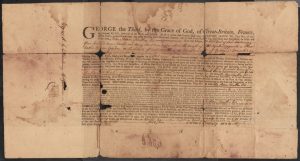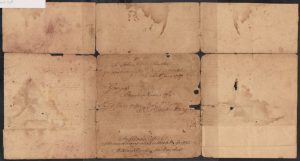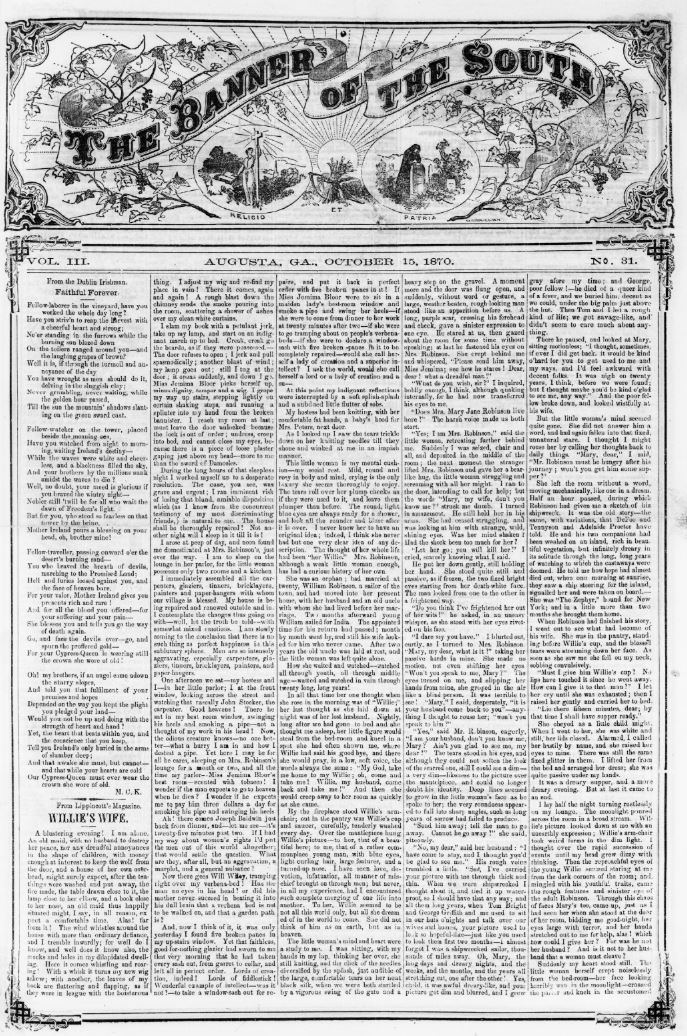Three map and plat collections featuring historical maps, plats, deeds, records, and correspondence pertaining to South Georgia land holdings dating from 1767 to 1899 are now available in the Digital Library of Georgia.
These resources belong to Valdosta State University Archives. They have been made available online thanks in part to the DLG’s Competitive Digitization grant program, a funding opportunity intended to broaden DLG partner participation for statewide historic digitization projects.
The three digital collections are:
- Deeds and Plats, Georgia, available at dlg.usg.edu/collection/valdosta_ms18, consisting of residential and commercial deeds, plats, maps, and other documents from counties and towns, mostly in southeast Georgia, dating from 1767 to 1899.
- Deeds, Camden County, Georgia, available at dlg.usg.edu/collection/valdosta_ms21, which includes deeds, plats, land grants, and legal documents dating from 1833 to 1899 regarding land in Camden County, Georgia, and northern Florida.
- John Adam Treutlen, June 1767, available at dlg.usg.edu/collection/valdosta_ms165, a land grant dated June 1767 assigned by King George III of England conveying four hundred acres of land in the parish of Saint Matthew, Georgia to John Adam Treutlen, Georgia’s first elected governor.
Digitization, description, and online access to these collections provide historical value to Georgia genealogists, and researchers of South Georgia and its development.
John G. Crowley, associate professor in the department of history at Valdosta State University notes: “Materials such as these are invaluable to genealogists and historians. They reveal patterns of land use, settlement, industrial development, and those involved in such enterprises. For the genealogist, land records are a source of general background information on individuals and families, establish patterns of movement and employment, and often reveal family relationships otherwise unknown or unproven. Southern historians, local historians, and genealogists both amateur and professional will profit enormously from improved access to this material.”
Chris Meyers, professor of history at Valdosta State University states: “The collections to be digitized represent what a genealogist would consider a prized find. Deed records fill significant gaps in genealogical research and making these records available to all, through digitization, represents a significant service to all genealogists.”
Link to featured image:
Royal Land Grant, St. Matthews Parish, Georgia, 1767/ Treutlen land grant/ Treutlen Deed
Land grant dated June 1767 assigned by King George III of England conveying four hundred acres of land in the parish of Saint Matthew, Georgia to John Adam Treutlen. Treutlen became Georgia’s first governor in 1777.


About Valdosta State University Archives and Special Collections
The VSU Archives and Special Collections supports the University’s commitment to scholarly and creative work, enhances instructional effectiveness, encourages faculty scholarly pursuits, and supports research in selective areas of institutional strength focused on regional need by collecting, preserving, and providing access to records of enduring historical value documenting the history and development of VSU and the surrounding South Georgia region and in support of VSU curriculum. Visit valdosta.edu/academics/library/depts/archives-and-special-collections/


